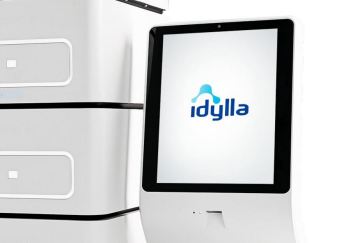
Image: Biocartis
Biocartis Group NV, a Belgian innovative molecular diagnostics company has published a comparative study organised by AstraZeneca where 12 different KRAS mutation detecting technologies, including Next-Generation Sequencing (NGS) and quantitative Polymerase Chain Reaction (PCR), were compared for the detection of KRAS mutations in lung cancer, using blinded samples.
The publication, presented on Monday in Denmark, showed superior levels of sensitivity of the Idylla(TM) KRAS technology to 10 out of the other 11 compared technologies, while at the same time it outperforms competition in ease-of-use and turnaround time.
As such, Biocartis said, the study confirmed best-in-class status for the Idylla(TM) KRAS technology.
Blinded comparative study
The AstraZeneca study assessed 12 KRAS mutation detection technologies commonly used in today’s molecular clinical diagnostic setting. The evaluated technologies included NGS (5) quantitative PCR (3, among which Idylla(TM)), mass spectrometry (2), digital droplet PCR (1) and Sanger sequencing (1). The study focused on DNA samples that reflect input conditions typically encountered in clinical biopsies, in particular those of non-small-cell lung cancer[1] (NSCLC) patients, since mutations in the KRAS gene, besides the EGFR gene[2], are one of the most common drivers of NSCLC[3]. An important strength of the study is that the testing was performed on blinded samples, meaning that the different technology users were unaware of the true KRAS status of the samples.
Rudi Pauwels, Chief Executive Officer of Biocartis, said: “This is the broadest comparison study conducted by an external party on Idylla(TM) performance to date with respect to the number of different technologies applied on one sample set. It demonstrates that with the Idylla(TM) technology, we can truly combine the advantages of point-of-care testing in terms of ease-of-use and speed with the performance that one would expect from technologies used in reference laboratories. As such, the Idylla(TM) technology has the potential to make rapid molecular diagnostic testing available in any routine diagnostic lab setting – large or small.”